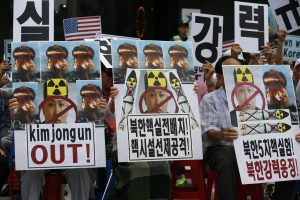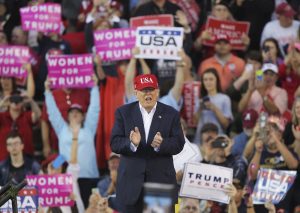
Washington, Jan 2 (EFE).- United States President-elect Donald Trump on Monday responded on Twitter to North Korea’s threats, stating that Pyongyang would not develop a nuclear weapon that could endanger US security.
Trump was responding to the New Year’s speech given on Sunday by North Korean leader Kim Jong-un, who announced that Pyongyang is finalizing preparations to launch another intercontinental ballistic missile, underscoring once again the regime’s commitment to its nuclear and missile programs.
“North Korea just stated that it is in the final stages of developing a nuclear weapon capable of reaching parts of the United States. It won’t happen!”, Trump said on Twitter.
A few minutes later, Trump hit out at China for benefiting from trade with the US while not helping to rein in Pyongyang.

“China has been taking out massive amounts of money & wealth from the US in totally one-sided trade, but won’t help with North Korea. Nice!,” he tweeted.
During the election campaign, Trump called Kim a “maniac,” but later said that the North Korean leader had to be given credit.
North Korea has launched six intercontinental ballistic missiles on six occasions, claiming that the launches were to orbit observation satellites.
However, the North Korean tests failed to achieve accuracy.
If its goal is reached, North Korea would have atomic weapons that could reach US territory and be used as a deterrent to ensure the survival of the regime.
For decades, Pyongyang has been irked by joint military exercises conducted annually by South Korea and the United States, a legacy of the 1950-53 Korean War, which ended with an armistice never replaced by a definitive peace treaty.
